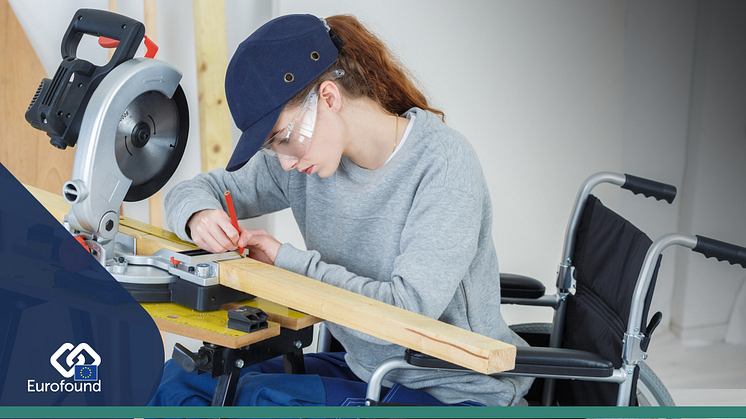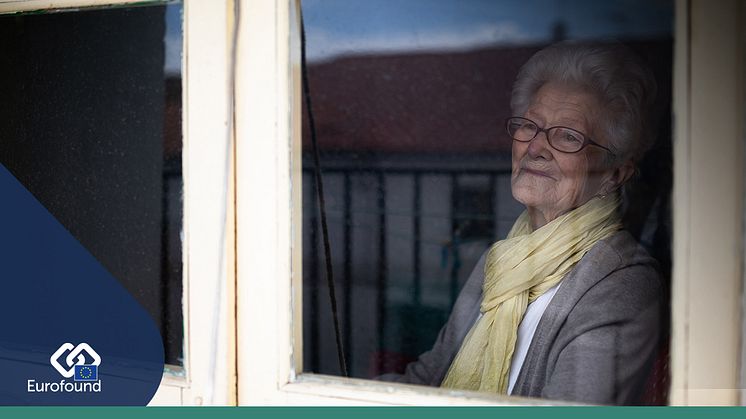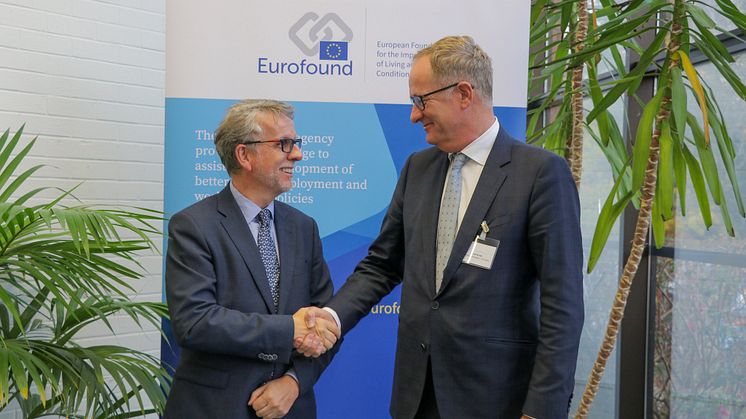
News -
The effects of COVID-19 on education, healthcare and housing put pressure on EU Child Guarantee
The life satisfaction reported by families with children in 2020 was lower than in households without children, a reversal on perception prior to the COVID-19 outbreak. Informal care and education duties increased for all parents during the pandemic but especially for single mothers with children under 12, who spent more hours per week caring for children in this period than parents in any other types of households. Eurofound’s new policy brief on ‘Education, healthcare and housing - How access changed for children and families in 2020’ focuses on the aspects of accessibility for children and families for which Eurofound has data and highlights differences in accessibility before and during the COVID-19 pandemic.
The COVID-19 pandemic has had a dramatic impact on the accessibility of health, education and care services for all Europeans. This is also the case for children, who in several countries have seen their schools closed and replaced with remote learning. They have been affected, too, by the pandemic’s negative impact on their families’ access to healthcare and their mental health. Many families have also experienced rising housing insecurity.
Access to key services such as education and healthcare, as well as stable family life and decent housing are necessary for the well-being and development of children. Ensuring that all children benefit from these resources is an EU priority, and the European Commission will address the issue in 2021 with a Child Guarantee to improve the lives of children in need. More broadly, the European Pillar of Social Rights states the rights of EU citizens to quality and inclusive education, timely and accessible healthcare, and quality social housing.
Service provision has been complicated by the COVID-19 outbreak, and the pandemic has put families under psychological and financial pressure. This policy brief presents evidence on some of the changes that children and their families have experienced during the pandemic in access to education and healthcare, in caring responsibilities, in mental health and in housing security. Whilst a lot of research has been done on these concerns, the situation has changed dramatically with COVID-19.
Unmet needs for healthcare during the pandemic arose mainly due to the lack of availability of services. Whereas cost has typically been one of the main reasons for unmet healthcare needs, this was not given the same importance in July 2020. Also, Europeans with children in their household reported a higher use of healthcare services online or by telephone than those without. Single parents availed of healthcare services in July 2020 to a lesser extent than households where both parents were present. The proportion of single parents reporting arrears in both rent or mortgage repayments and utility bills was approximately twice the average of the total population.
The educational supports put in place during the pandemic to facilitate online schooling were widespread in primary and secondary education but were not found to be satisfactory by most Europeans. However, most respondents whose children took part in online schooling were not satisfied with its quality, did not find it positive and were not keen to repeat the experience in the future. This is in contrast to working from home during the pandemic, which was a satisfactory experience for most Europeans.
The explicit aim of the proposed Child Guarantee is to make services for children more affordable. The feasibility study for the Child Guarantee, however, makes more reference to access barriers and obstacles than costs. Similarly, the roadmap states that ‘the Child Guarantee will recommend Member States to ensure affordability, accessibility and availability of inclusive quality services for children in need’, implying a broader understanding of accessibility than merely cost. The data in this policy brief confirm the importance of barriers other than cost. Lack of availability of healthcare services was the main reason for unmet healthcare needs in the summer of 2020.
Download: Education, healthcare and housing - How access changed for children and families in 2020
More information:
Topic page: Care
Topic page: COVID-19
Data: Living, working and COVID-19
Data: COVID-19 EU PolicyWatch
Forthcoming publication: Impact of the COVID-19 crisis on young people






